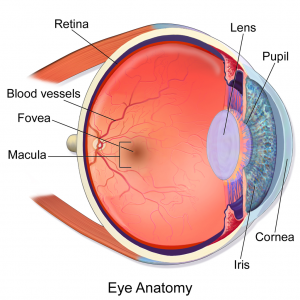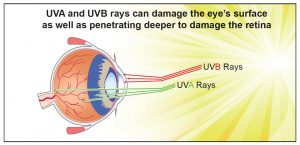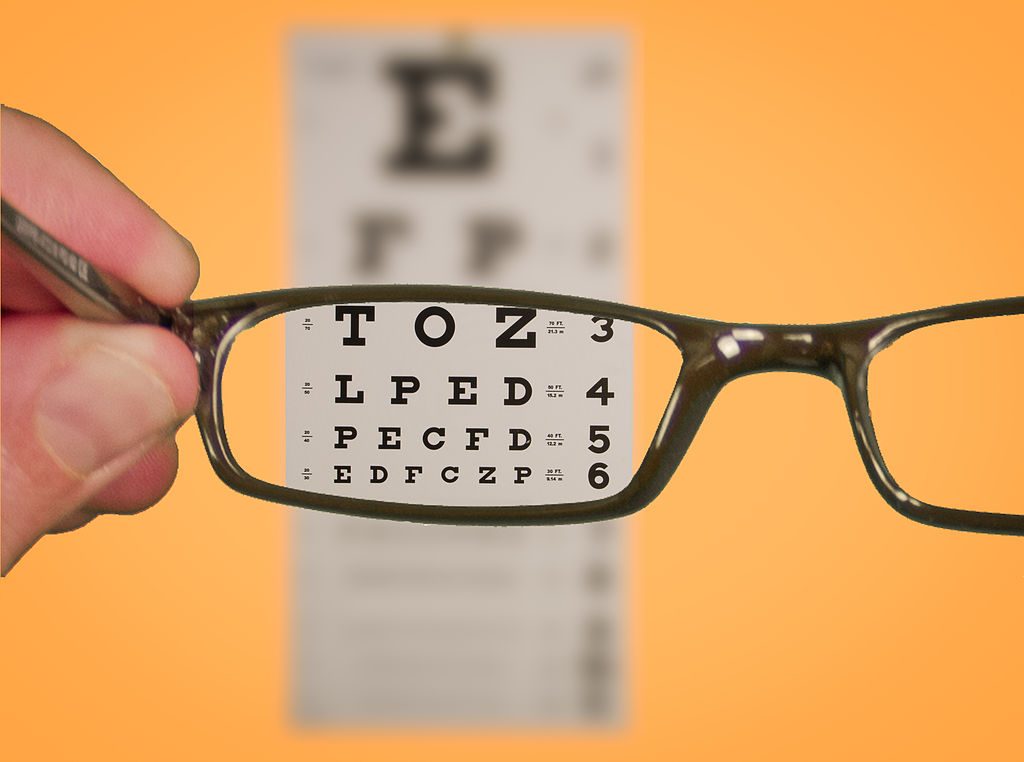Vision enhancers are supplements that support eye health. Although they have been typically used by older adults looking to ward off age-related eye conditions such as macular degeneration , they are now increasingly utilized by gamers, athletes, drivers, hunters, and others whose performance depends on sharp eyesight.
Indeed, far from just defending against eye disorders, vision enhancers might also be capable of enhancing vision, with potential benefits such as improved ability to see rapidly moving objects, better visual processing, and improved vision in the dark. This guide provides a background on vision and explores the function, benefits, and uses of vision enhancers.
Understanding Vision

- Light particles, or photons, are detected by the lens of the eye
- The photons focus onto the retina
- Photoreceptive cells on the retina, known as cones and rods, convert the visual information into electrical signals
- The signals are sent to the brain via the optic nerve and processed into images
Essential to this process is the macula, a tiny yellow spot near the back of the eye that is responsible for central vision, which includes direct sight.
How Vision Enhancers Work
Vision enhancers can support healthy vision through a multitude of ways, the most notable of which are:
Combating oxidative stress
One of the primary threats to eye health is oxidative stress, in which compounds known as reactive oxygen species (ROS) build up as a result of natural processes and environmental toxins and cause damage to cells. Many vision supplements have a high antioxidant content that can help offset oxidative stress and in doing so safeguard eye health.1
More specifically, antioxidants have been shown to reduce the occurrence of various destructive processes in the eye, including lipid peroxidation, protein oxidation, proteolysis, insolubilization of the lens, and UV radiation.2 3 4
Managing microcirculation
Proper microcirculation to the eyes ensures proper oxygen and nutrient delivery. Ingredients in vision enhancers, most notably anthocyanosides, can help enhance ocular blood flow by:
- Strengthening blood vessel lining by nourishing connective tissue and increasing collagen synthesis5 6
- Increasing blood flow to the retina and choroid for enhanced oxygenation and nutrient supply7
- Reducing inflammation, which would otherwise damage vascular structure8
Stabilizing Tear Film
A healthy layer of tear film—the protective coating of tears that protects and lubricates the eye—reduces the risk of infection, washes away foreign substances, and keeps the eye’s surface smooth. Essential vision enhancers, like vitamin A, have demonstrated a capacity to protect tear film, especially for those with dry eyes.9
Regenerating rhodopsin
The anthocyanosides present in many natural vision enhancers may promote the production of rhodopsin, which is a compound in the eyes that is critical for adaptation to darkness and visual recovery from glare and flash blindness. For example, black currant carries anthocyanosides, prominently C3G, that implement rapid rhodopsin regeneration and the activation of retinal enzymes.10 Other anthocyanosides have been shown to block the activation of enzymes that decrease rhodopsin levels.11
![Rhodopsin regeneration. By OpenStax College [CC BY 3.0], via Wikimedia Commons](https://supplementsinreview.com/wp-content/uploads/2016/09/1415_Retinal_Isomers-1024x967.jpg)
Macular Degeneration as a Threat to Healthy Vision
 Age-related macular degeneration (AMD) is an increasingly common eye condition that has been pinpointed as the main cause of vision loss in adults over 50 years old. AMD involves the gradual loss of vision caused by damage to the macula – a small yellow spot near the center of the retina. Risk factors of AMD include:
Age-related macular degeneration (AMD) is an increasingly common eye condition that has been pinpointed as the main cause of vision loss in adults over 50 years old. AMD involves the gradual loss of vision caused by damage to the macula – a small yellow spot near the center of the retina. Risk factors of AMD include:
- Aging
- Obesity
- Long-term sun exposure
- Smoking
AREDS: Antioxidants May Slash the Risk of Vision Loss by 25%
The Age-Related Eye Disease Study (AREDS) was a six-year investigation launched by the National Eye Institute that tracked over 4,700 participants between the ages of 55 and 80 years. Researchers reported that a high dose combination of antioxidants and minerals reduced the risk of vision loss by 25% in potential AMD patients. The exact supplements used in the study included:
- 500 mg of Vitamin C
- 400 IU of Vitamin E
- 15 mg of Beta-carotene
- 80 mg of Zinc
- 2 mg of Copper
A follow-up study, AREDS 2, recommended a lower dose of zinc (40 mg), as well as identifying lutein and zeaxanthin as additional carotenoids that reduce the risk of vision loss.
At the end of the day, a healthy intake of red, orange, green, and yellow fruits and vegetables, such as tomatoes, carrots, and dark leafy greens, has been shown to benefit vision and eye health.12
Types of Vision Enhancers
There are various kinds of vision enhancers. Check out our vision supplement list for a detailed look at each one.
Vitamins
The chief vision-enhancing vitamin is vitamin A. It is central to healthy eyes and may play a major part in photosensitivity and dark adaptation. Deficiency in the vitamin is the leading cause of preventable blindness in children.
Minerals
Several minerals are present in the eye and are critical for healthy vision. There is a particularly high concentration of zinc in the retina, suggesting that it plays an important role in eye health.
Carotenoids
Carotenoids are natural compounds best recognized for the bright yellow, orange, and red colors they give to the fruits, vegetables, and other plants in which they are found. The most prevalent carotenoids in U.S. diet are alpha-carotene, beta-carotene, β-cryptoxanthin, lutein, zeaxanthin, and lycopene. Although less common in the U.S., astaxanthin is a carotenoid that is arguable the most potent antioxidant.13 Various mixtures of carotenoids are drawn from plants and used as vision enhancers, including saffron, bilberry, and black currants.

Carotenoids by the numbers:
- 600 carotenoids are known in nature
- 50 carotenoids are found in our diets
- 12 carotenoids can be digested and absorbed
- 2 carotenoids settle particularly in the macula region of the eye: lutein and zeaxanthin
Omega-3 Fatty Acids
Fish oil is loaded with omega-3 fatty acids—docosahexaenoic acid (DHA) and ecosapentaenoic acid (EPA)—that are believed to help to maintain healthy vision. DHA is highly concentrated in retinal cell membranes, where it modulates inflammation, optimizes retinal phototransduction, and down-regulates certain growth factors that are associated with eye problems.
Vision Enhancer Benefits
Outside of supporting eye health and reducing the risk of developing eye disorders, vision enhancers may also be able to improve various aspects of eye function, including:
- Hyperacuity. Certain carotenoids, especially lutein and zeaxanthin, may improve the ability to see details and discern moving objects.14
- Retinal signaling. Vision enhancers may improve reaction time by accelerating signaling between the macula and retina.
- Contrast sensitivity, the ability to discern objects from their backgrounds, particularly in low-light conditions
- Adaptation, especially dramatic shifts in light exposure
- Glare reduction, particularly against flashing lights.
- Eye comfort and energy. Vision enhancers may reduce eye dryness, itchiness, and fatigue.
What is the Best Vision Enhancer?
Among the vision enhancers commercially available, research suggests that the best supplement for vision health may be a combination of antioxidants and minerals, the standouts being lutein, zeaxanthin, beta-carotene and zinc.
In terms of night vision, fruits containing high amounts of anthocyanins have shown the most promising ability to enhance dark adaptation, the top choice being bilberry; black currant is a close second.
As for enhancing visual performance and reducing fatigue in healthy eyes, it’s far too early to tell which single compound is best. Having said that, lutein shows the most promise and has strong research backing. Combining lutein with zeaxanthin, vitamin A, zinc, bilberry, and black currant may be the best option for enhanced visual function.
Conclusion

Vision enhancers, as of now, can only be said with certainty to reduce the risk of vision loss. Minimizing the chance of deteriorating eyesight, not to mention going blind, is great news for adults, and so eating fruits and vegetables stocked with antioxidants and carotenoids on the regular should definitely be taken into consideration.
On the other hand, enhancing healthy eyesight – be it through reducing eye strain & fatigue, improving night vision, glare reduction, and other performance benefits – has only begun to be researched, and as such requires further evidence before anything conclusive can be said.
